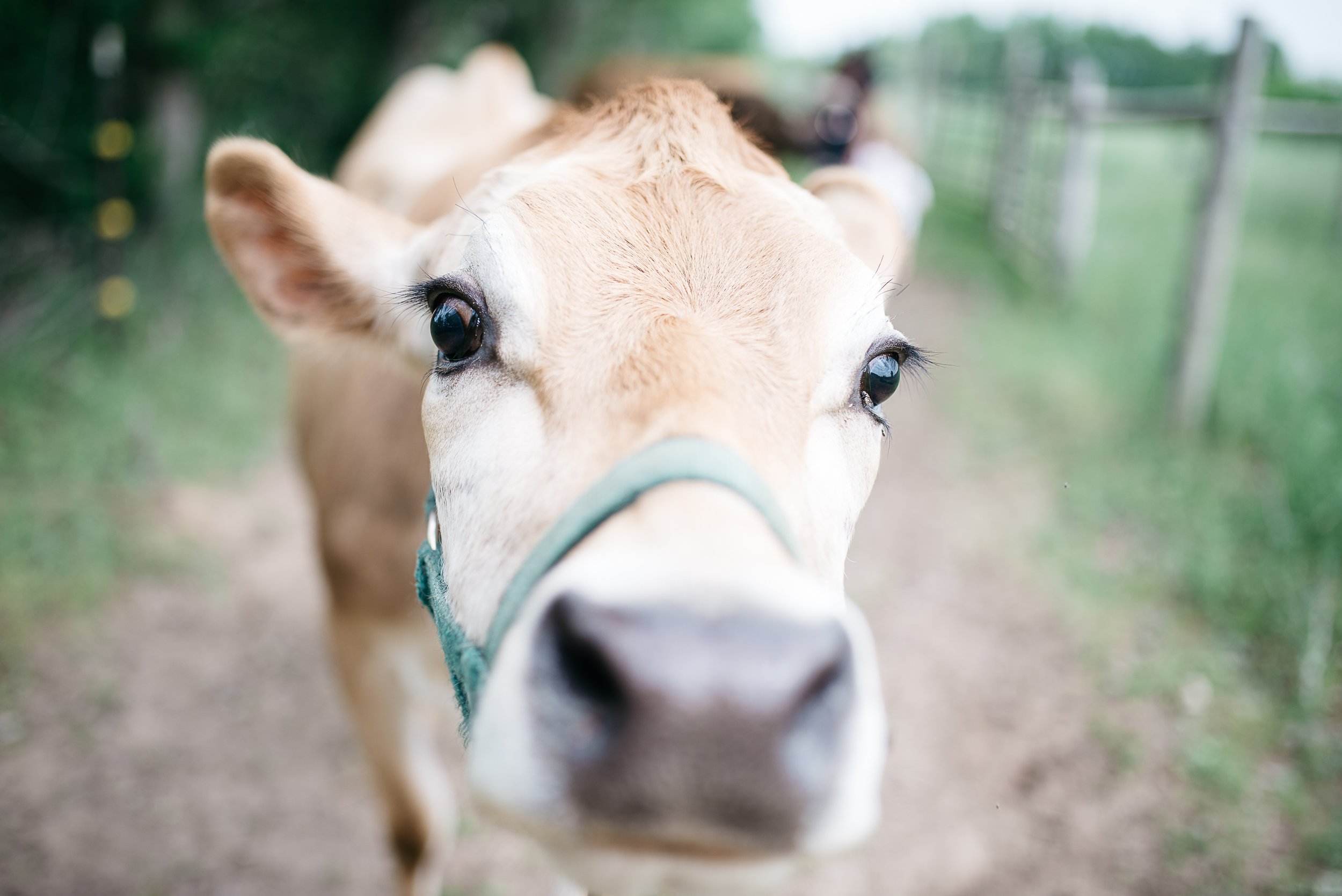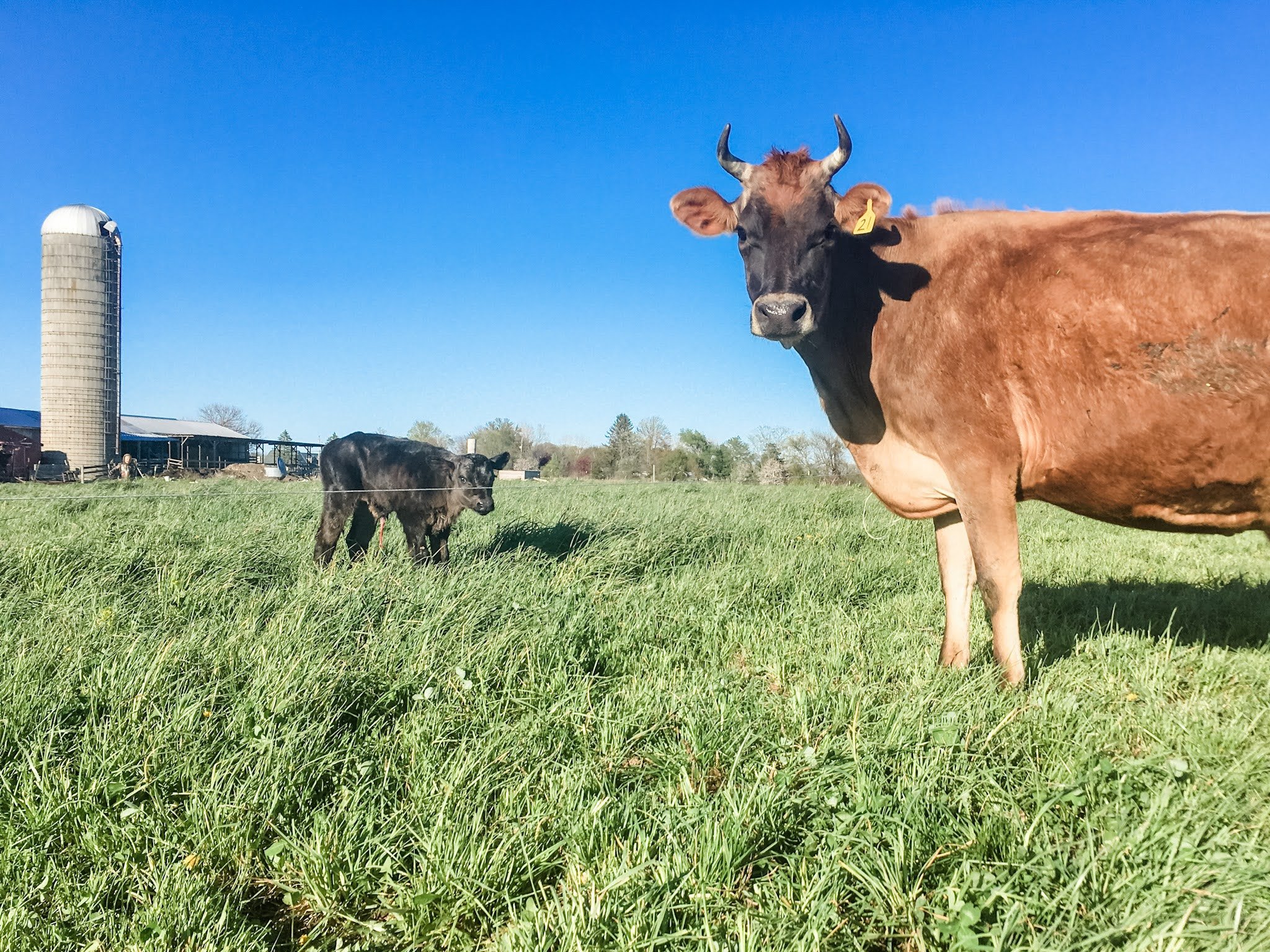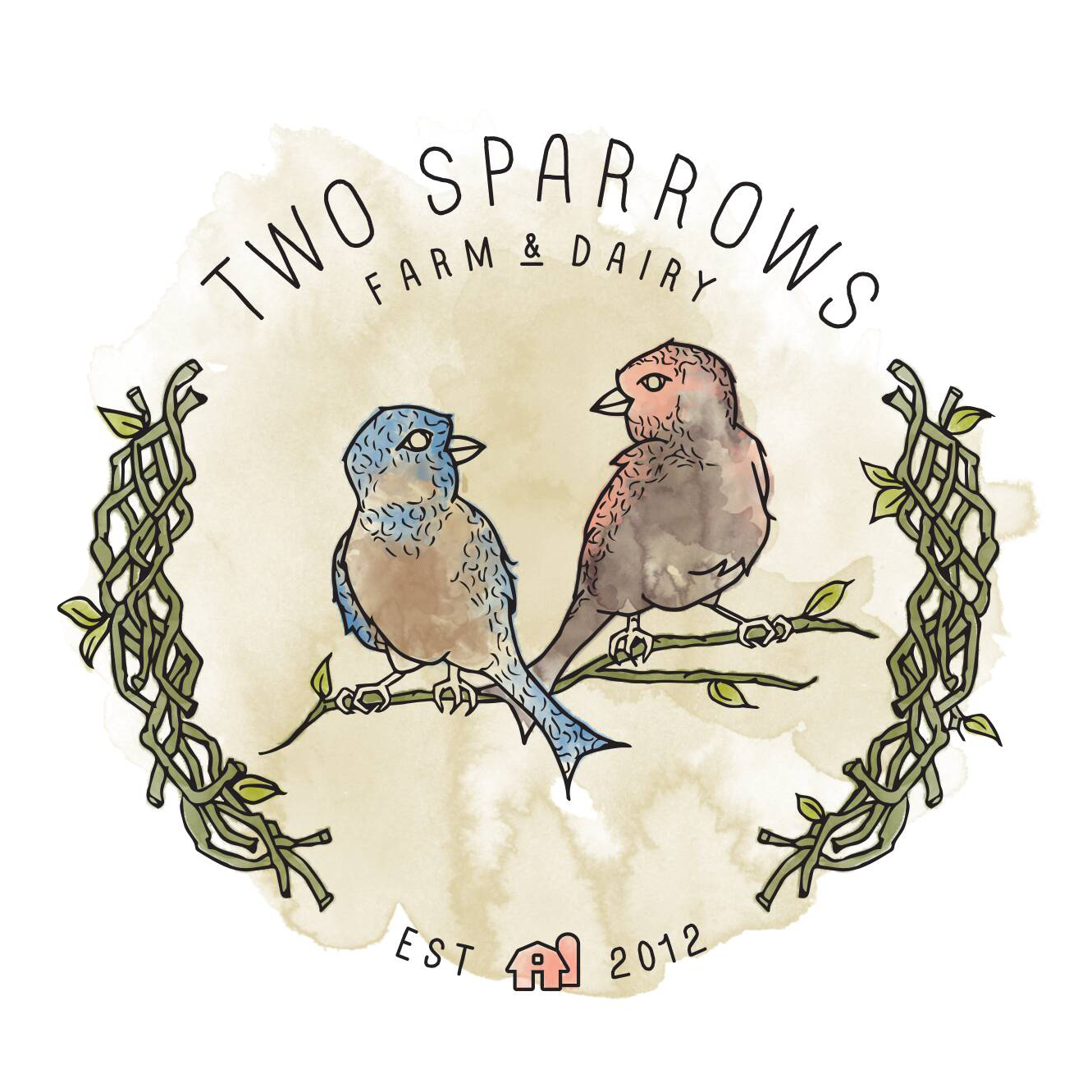
Herdshare



About the Herdshare
-
Herd shares are the only legal way to obtain access to fresh, unprocessed, whole milk (commonly called “raw milk”) in the State of Michigan. A herd share is an agreement in which a person own shares of a herd, which is cared for by the farmer.
The owner pays an annual lease fee and boarding fees in return for access to the milk on a weekly basis.
Especially since the milk is unprocessed, we take the utmost care with herd health, hygiene and sanitation with the herd, milking equipment and facilities.
-
We believe that fresh, unprocessed, whole milk is extremely beneficial to your health. Processed whole milk, like what is available in retail stores, is regulated to a 3.5% fat content while ours is consistently tested in the 5 – 5.5% range.
Our herd consists of 75% pure Jerseys and 25% Jersey crosses {Jersey-Guernsey/Holstein/Swedish Red}. Their milk is, in many ways, unique – they are known for their sweet, creamy and smooth tasting milk that is high in both milkfat and butterfat.
Their grass-fed diet ensures that their milk contains more than five times the amount of Conjugated Linoleic Acid (CLA) than grain-fed cows and is full of bio-available nutrients like Vitamin A, D, K and Calcium.
Jersey milk, on average, contains 18% more protein, 20% more calcium and 25% more butterfat than average whole milk. They produce a smaller quantity of milk but a better quality.
-
Milk is picked up on a weekly basis, either from the farm or from a pickup location. Deliveries must pick up from the location during the specified times.
Milk is cooled and then filled in gallon or half-gallon plastic jugs that are recyclable and BPA-free. You do not have to worry about returning jars each week.
If you need to end your share before your full 1 year contract is up, then we will not charge you for your boarding fees once you stop receiving milk. However, you will not receive a prorated portion of your lease fee back -that fee is nonrefundable.
-
Our cows graze our pastures from April – December and are fed high-quality forage from December – March. They have access to the pasture during the winter months and this primarily benefits their health by getting fresh air and stretching their legs. Lactating cows (not heifers or dry cows) receive a 100% non-GMO grain during daily milking.
To read more about our Practices, please read our Beef & Pork page.
-
Our farm can test for coliform, e. coil and aerobic plate count on the farm.
In addition, we also use a food safety lab in Grand Rapids (Summit Labs) and another lab in Grand Ledge (NorthStar Cooperative) depending on what we’re looking for in the milk.
We test our milk frequently for Somatic Cell Count, as well, which can help us determine if a cow’s immune system is “on alert,” potentially fighting an infection. We generally like to begin treatment at the sub-clinical level with injections of high doses of vitamins, like B-12 and selenium.
During and after treatment of an illness, we discard all of the milk from that cow to avoid any potential antibiotic residue during the withdrawal time. We would rather be short on milk for a week than give out a produce we do not feel is 100% safe for customers.
We want our members to understand that no food is 100% safe. We have strict guidelines that we follow to mitigate as much risk as possible, however, we all choose to consume or not consume food based on our own risk tolerance. We are huge advocates of fresh milk! But, we don’t want any member to feel uncomfortable consuming it.
-
We do not use growth hormones or prophylactic antibiotics in our animals and, although our land is not USDA certified organic, the only thing that ever touches our pastures is manure. There are no pesticides, herbicides, or sprays on our land so the animals’ feed is clean.
-
In general, we’ve found this to be true! Many members come to fresh, whole, unprocessed milk because of digestibility, actually. I was one of them – lactose intolerant my whole life but I have no problem with digesting raw milk. A 2007 U of M and Weston A. Price survey actually found that around 89% of lactose intolerance actually goes away when they switch to raw milk.
There is an enzyme called lactase in raw milk that is killed during the pasteurization process so your body is just left with lactose, which is particularly difficult for many peoples’ guts to digest alone. In unprocessed milk, both lactose and lactase are present, aiding your body in the digestive process. A minority of people still have problems with raw cow’s milk, and that usually stems from a casein sensitivity or allergy (casein is another protein in milk like lactose). Casein is not in goat’s milk so many people find they can switch to that with no issue.
Either way, unprocessed milk is a whole, living food that is designed to be consumed by a newborn calf with a weak immune system and a nominal intestinal track. What that means for us is that all the nutrients in unprocessed milk are completely bio-available and in the most easily digestible form possible. The more we process milk through pasteurization, homogenization and added food dyes, the more problems we encounter in our body’s ability to process the milk.
-
If you know you will be gone ahead of time (like a vacation) you can ask someone to pick up your milk for you (babysit your share) while you’re gone or just let us know and we won’t fill bottles for you that week.
If you forget to pick up milk, you will forfeit your milk for that week. If you miss a Grand Rapids delivery, you can opt to drive to the farm to pick up your missed milk.
Even when members miss their milk pickup, we are still doing the work of milking, feeding the cows, cleaning up after the cows, bottling the milk and incurring the entire production expense for that share of milk. We are more than happy to comp milk when something happens on our end. But, the member’s only responsibility is to pick up milk each week.
We really appreciate your understanding with this policy.
-
There is a $50 annual lease fee to legally join the herdshare.
Shares are available in half gallon increments up to 5 gallons/week.
Costs Updated As of January 2025
Half Share: 1/2 gallon per week ($26/ month in boarding fees)
One Share: 1 gallon per week ($52/month)
One & Half Shares: 1.5 gallons per week ($78/month)
Two Shares: 2 gallons per week ($104/month)
Lowell Delivery ($9/month flat fee)
Lowell: Starbard Farms Feed (11931 Riverside Dr. – private pickup room)
Wednesday - Friday 9am - 6pm + Saturday 8am - 2pm
On-Farm Pickup (Free)
Eaton Rapids: Two Sparrows Farm (9370 Columbia Hwy)
Tuesday – Friday 10am - 7pm
Ready to join?
Use this form to receive more detailed information & join the list!







